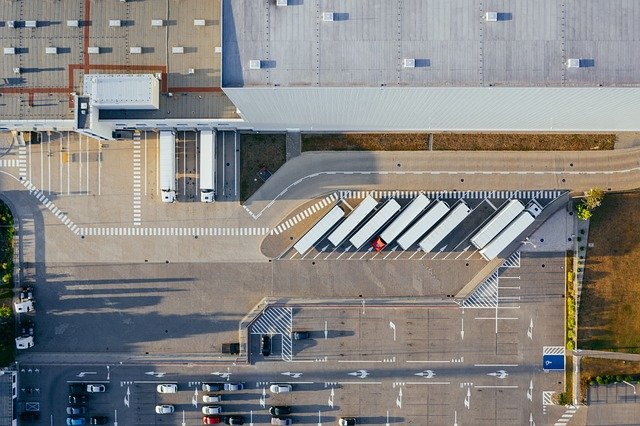Portable Warehouses: Flexible Storage Solutions for Businesses on the Move
In today's fast-paced business environment, flexibility and adaptability are key to success. As companies grow, expand, or face temporary storage challenges, the need for versatile storage solutions becomes increasingly important. Enter the portable warehouse – a revolutionary concept that's changing the way businesses approach their storage needs. This article delves into the world of portable warehouses, exploring their benefits, applications, and how they're reshaping the landscape of temporary storage solutions.

What exactly is a portable warehouse?
A portable warehouse, also known as a mobile storage unit or temporary warehouse, is a flexible and transportable structure designed to provide temporary or semi-permanent storage space. These modular warehouses are typically constructed using durable materials such as steel or aluminum and can be easily assembled, disassembled, and relocated as needed. Unlike traditional brick-and-mortar warehouses, portable warehouses offer businesses the ability to quickly expand their storage capacity without the long-term commitment or substantial investment associated with permanent structures.
How do portable warehouses benefit businesses?
Portable warehouses offer numerous advantages for businesses across various industries. First and foremost, they provide a cost-effective solution for temporary storage needs, eliminating the need for long-term leases or expensive construction projects. The flexibility of these mobile storage units allows companies to scale their storage capacity up or down based on seasonal demands or project requirements. Additionally, portable warehouses can be customized to meet specific storage needs, such as climate control for sensitive goods or enhanced security features for valuable inventory.
What industries commonly use portable warehouses?
The versatility of portable warehouses makes them suitable for a wide range of industries. Construction companies often use these temporary warehouses to store equipment and materials on job sites. Retailers find them invaluable for managing seasonal inventory fluctuations or during store renovations. Manufacturing facilities utilize portable warehouses for overflow storage during peak production periods. Agricultural businesses benefit from these modular warehouses for storing harvested crops or equipment. Even educational institutions and healthcare facilities have found portable warehouses useful for temporary storage during renovations or expansions.
How are portable warehouses installed and maintained?
Installing a portable warehouse is a relatively straightforward process. Most mobile storage units are designed for quick assembly and can be set up in a matter of days, depending on the size and complexity of the structure. Many providers offer turnkey solutions, handling everything from site preparation to final installation. Maintenance of portable warehouses is generally minimal, thanks to their durable construction. Regular inspections, cleaning, and addressing any wear and tear promptly can help ensure the longevity of these temporary structures. Some providers also offer maintenance services as part of their rental or leasing agreements.
What are some unique features of portable warehouses in the United States?
In the United States, portable warehouses have evolved to meet the diverse needs of businesses across the country. Many providers offer advanced climate control options, making these temporary warehouses suitable for storing temperature-sensitive goods in various regions, from the humid Southeast to the arid Southwest. Security features have also become more sophisticated, with options for integrated alarm systems, surveillance cameras, and reinforced entry points. Some U.S. manufacturers have developed innovative modular designs that allow for easy expansion or reconfiguration of the warehouse space as business needs change.
How do costs compare for different portable warehouse options?
When considering portable warehouse solutions, businesses have several options to choose from, each with its own cost implications. Here’s a comparison of some popular portable warehouse providers in the United States:
| Provider | Type of Structure | Size Range | Estimated Monthly Cost |
|---|---|---|---|
| Mobile Mini | Steel Containers | 10’ - 40’ | $100 - $500 |
| WillScot | Modular Buildings | 8’ x 20’ - 24’ x 60’ | $500 - $2,000 |
| Pac-Van | Portable Storage Containers | 20’ - 40’ | $150 - $600 |
| PODS | Portable Containers | 8’ - 16’ | $200 - $400 |
| Modular Genius | Custom Modular Warehouses | Varies | $1,000 - $5,000+ |
Prices, rates, or cost estimates mentioned in this article are based on the latest available information but may change over time. Independent research is advised before making financial decisions.
The cost of a portable warehouse can vary significantly based on factors such as size, features, duration of use, and location. While smaller storage containers may be suitable for short-term needs or smaller businesses, larger modular warehouses offer more space and customization options for growing companies or those with specialized storage requirements. It’s important to consider not only the immediate cost but also the potential long-term savings and flexibility these solutions provide compared to traditional warehouse leasing or construction.
In conclusion, portable warehouses offer a versatile and cost-effective solution for businesses facing storage challenges. Whether you’re a small retailer managing seasonal inventory or a large manufacturer needing temporary overflow storage, these mobile storage units provide the flexibility and scalability to meet a wide range of needs. As the business landscape continues to evolve, the adaptability of portable warehouses makes them an invaluable asset for companies looking to stay agile and responsive to changing market demands.




